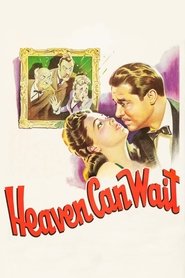The elliptical structure of the film’s narrative never permits us to see characters making these alterations to their surroundings or effects, and the characters never remark on them. As a consequence, every change seems to happen mysteriously, of its own accord. Just as a child may view transformations in his universe as miraculously self-generating because he does not have the knowledge or experience to know how they come about, change is presented in this film as self-generating because that is a view that belongs to the narrator, Henry himself.
— William Paul (Criterion)
Synopsis: Spoiled playboy Henry van Cleve dies and arrives at the entrance to Hell, a final destination he is sure he deserves after living a life of profligacy. The devil, however, isn't so sure Henry meets Hell's standards. Convinced he is where he belongs, Henry recounts his life's deeds, both good and bad, including an act of indiscretion during his 25-year marriage to his wife, Martha, with the hope that "His Excellency" will arrive at the proper judgment.

